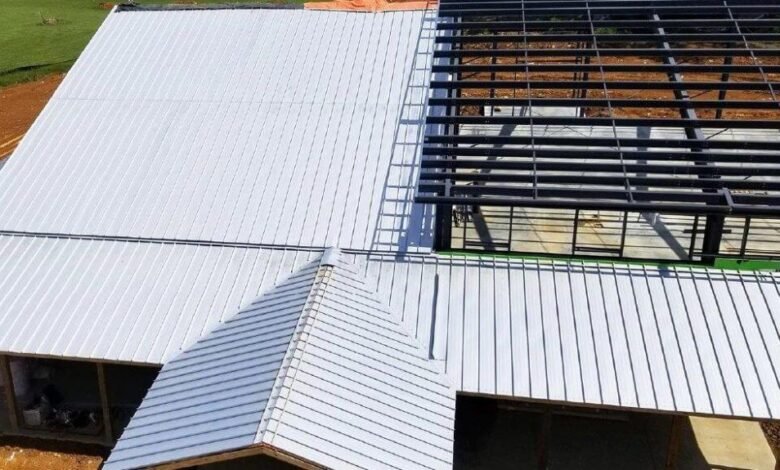Cracking the Code: Understanding the Science of Insulation in Metal Buildings

The strength of metal buildings is undeniable. Whether you have an expansive warehouse for your business or use metal buildings for office activities, this can be the dependable property you require. But, it does have its downsides, which soon become apparent. We’re talking about high temperatures in the summer, freezing cold interiors in the winter and the threat of excess moisture in mold.
These downsides don’t have to deter you from metal buildings. Instead, it’s about taking action to prevent them. This is where insulation comes in. Let’s dive in and learn more.
The Basics of Insulation
Let’s start with the basics. Insulation is like the unsung protagonist of a construction story. It’s the material that wraps your building in a cozy blanket, regulating temperature and keeping the elements at bay. But it’s not just about warmth; insulation is a multitasker, contributing significantly to energy efficiency and, as we’ll discover, thwarting the advances of moisture.
Moisture in Metal Buildings: The Silent Enemy
Moisture has a knack for wreaking havoc in the most inconspicuous ways. In metal buildings, it’s not just a matter of discomfort; it can lead to corrosion, mold growth, and structural deterioration. Recognizing the signs of moisture-related issues is crucial, making the role of insulation all the more significant.
The Science Behind Insulation as a Moisture Barrier
Imagine your metal building is a hot cup of coffee on a chilly morning. Insulation works by preventing the heat (and, consequently, moisture) from escaping or infiltrating your cozy space. Condensation is kept at bay, thanks to the science of insulation acting as a formidable moisture barrier. To invest in high-quality materials and those popular with business owners, head to BlueTex Insulation. You can get free samples of their best-selling products.
The Economic Impact of Moisture-Resistant Metal Buildings
Investing in quality insulation isn’t just a matter of comfort; it’s a smart financial move. Preventing moisture-related damages in your metal building translates to long-term cost savings. It’s like giving your building a raincoat – a small investment now for significant returns in the future.
Why You Want Pure Aluminum for a Radiant Barrier
If you’re looking to reduce heat in your metal building and want to improve temperature control, you need to install a radiant barrier. Always pay attention to what this is constructed from. Some materials are better than others when it comes to reflectivity and DIY installation.
In particular, you want your radiant barrier to be made from pure aluminum. This will offer you a variety of advantages over other materials. Let’s take a closer look at what they are.
Highly Reflective
The best thing about aluminum is its reflectivity. Indeed, you can just look at this material and see how shiny it is. Well, it’s one of the best materials for reflecting heat, which can help to keep the temperatures cool in your metal building. You’ll find that pure aluminum can block as much as 97 per cent of radiant heat. Therefore, the high temperatures won’t cause the heat to be absorbed by your metal building.
Easy to Install
If you’re going DIY with your radiant barrier, you’re searching for a material that’s easy to install. Thankfully, this is what you’re going to get with pure aluminum. It’s known for being a lightweight material, which makes it easier to install than others on the market. Thus, you can hold it above your head and install it on your metal building without many problems. Plus, you can easily transport it if necessary.
Very Durable
Note that aluminum might be lightweight, but this doesn’t make it flimsy. Instead, it’s famous for being a durable material and one that’s corrosion-resistant. This is exactly what you need for your metal building, and you can enjoy peace of mind that it’ll last for a long time. When it’s used as a part of an insulation kit, it can be highly effective.
Cost Efficient
If you’re concerned about the price of a radiant barrier, know that aluminum is cost-effective. So, if you need a lot of this material, it shouldn’t break the bank. This can ensure that you stick to your budget. Of course, you’ll also keep your expenses down when you choose to install the radiant barrier by yourself.
Conclusion
Our journey into the science of insulation reveals a world where moisture is not a looming threat but a conquerable challenge. Armed with the right knowledge and materials, your metal building can be a resilient fortress, weathering storms and maintaining structural integrity for years to come.





